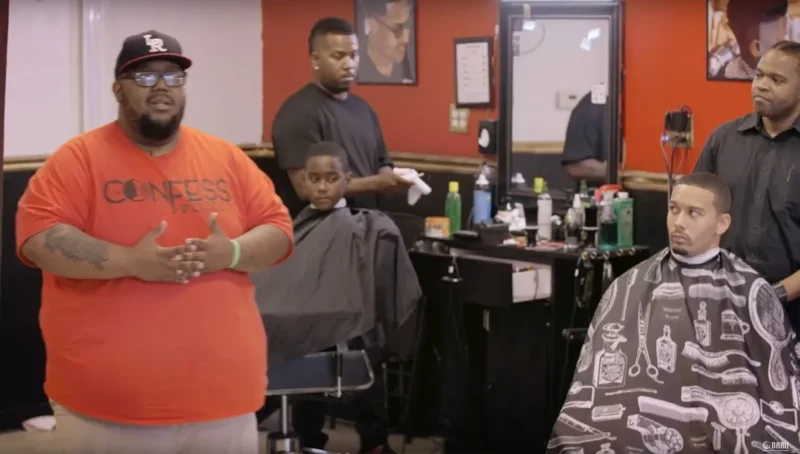The Confess Project Tackles Mental Health in the Black Community Through a Safe Space: The Barber Chair
Share
Explore Our Galleries
Breaking News!
Today's news and culture by Black and other reporters in the Black and mainstream media.
Ways to Support ABHM?
By Isaiah Singleton, The Atlanta Voice
Professional barber Lorenzo trains barbers to be mental health advocates and fight the stigma within the Black community.

For many in the Black community, it can be incredibly daunting to discuss the topic of mental health due to this concern about how they may be perceived by others.
[…]
Professional barber Lorenzo Lewis created The Confess Project, a national mental health awareness movement that trains barbers to be mental health advocates and fight the stigma within the Black community.
The Confess Project, according to Lewis, was inspired by his own personal journey.
“I was born in jail to an incarcerated mother, who was also impacted by mental health and in my early youth at 10, I was checked into a mental health psychiatric facility,” he said. “I had just lost my father and was going through anxiety and undiagnosed depression.”
Unfortunately, this led to Lewis being incarcerated at the age of 17.
“I was at the place I had been born in and I recognized those challenges I faced persisted,” he said.
[…]
Three years later, Lewis was released and was given the opportunity to work in a juvenile justice facility. Lewis said while working in the facility, he recognized the needs and opportunities that were needed in the Black community regarding mental health.
“I saw a veil of myself at a much younger age, as I not only had been disconnected from that system three years prior to that point of working there,” he said. “So, it was very fresh, I could relate because I was 21 and working with people who were 16-17 who committed violent crimes and so I had a very strong connection between that.”
Keep reading about Lewis’ journey to create this program.
Barbers and their businesses are so important to communities that they become targets of hate.
Our breaking news section includes timely stories about Black mental health.









Comments Are Welcome
Note: We moderate submissions in order to create a space for meaningful dialogue, a space where museum visitors – adults and youth –– can exchange informed, thoughtful, and relevant comments that add value to our exhibits.
Racial slurs, personal attacks, obscenity, profanity, and SHOUTING do not meet the above standard. Such comments are posted in the exhibit Hateful Speech. Commercial promotions, impersonations, and incoherent comments likewise fail to meet our goals, so will not be posted. Submissions longer than 120 words will be shortened.
See our full Comments Policy here.